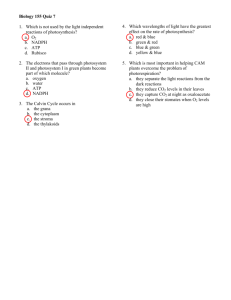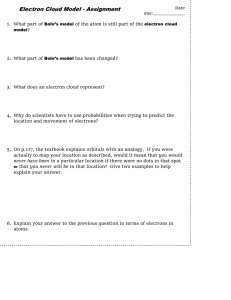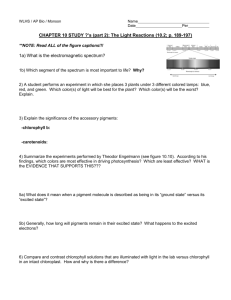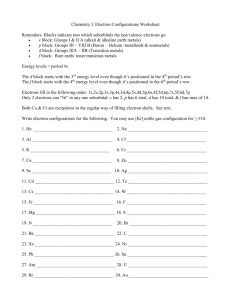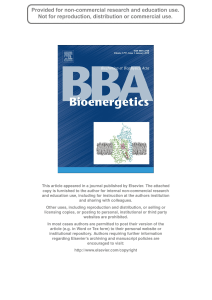7.8 In light reactions, electron chains generate ATP and NADPH
advertisement
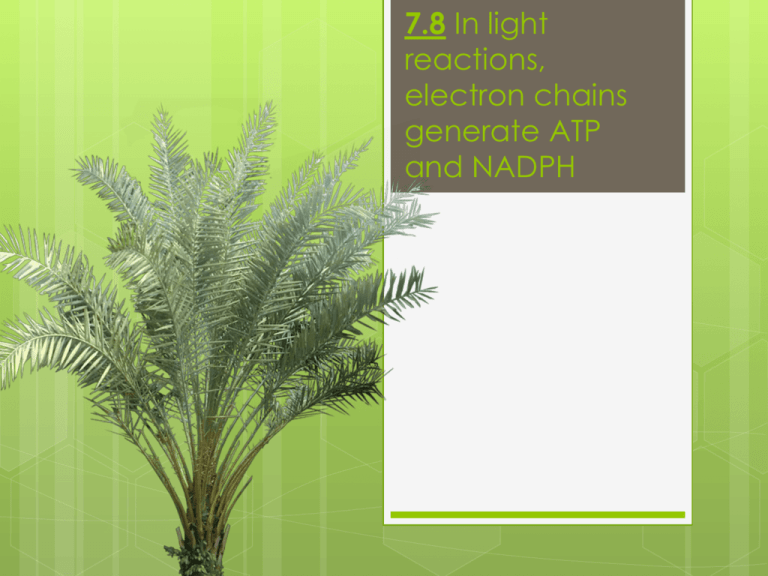
7.8 In light reactions, electron chains generate ATP and NADPH Overview of light reactions During light reactions, light energy is transformed to chemical energy (ATP and NADPH) In this reaction, electrons that are removed from water molecules pass from photosystem II to photosystem I to NADP+. Between these 2 photosystems, electrons move down an electron transport chain, providing energy to make ATP. Flow of electrons Steps 1-3 1: Photon is absorbed by a pigment and then passed down to other pigments until reaching the reaction center of Photosystem II, exciting an electron of chlorophyll P680 to a higher energy level. 2: Electron is captured by primary electron acceptor. 3: Water is split, and its electrons are supplied one by one to P680, replacing those lost to primary electron acceptor. Then the oxygen atom combines with another oxygen from a split water molecule, forming O2. Step 4 4: Each photoexcited electron moves from Photosystem II to Photosystem I by an electron transport chain. The “fall” of electrons provides energy for the creation of ATP. Steps 5-6 5: Meanwhile, light energy excites an electron of chlorophyll P700 in the reaction center of photosystem I. The primary electron acceptor captures the excited electron and an electron from the bottom of the electron transport chain replaces the lost electron in P700. 6: Excited electron of photosystem I goes through short electron transport chain to NADP+, reducing it to NADPH. Mechanical analogy This analogy can help you understand this process. The yellow mallets represent the input of light energy which pushes electrons in the photosystems to excited states. These electrons are then caught by the primary electron acceptor (the person on top of each platform). Photosystem II then passes the electrons through an ATP mill, and Photosystem I hands its electrons off, reducing NADP+ to NADPH.
